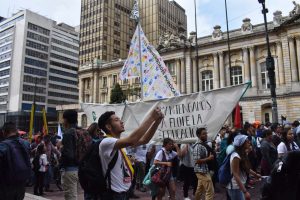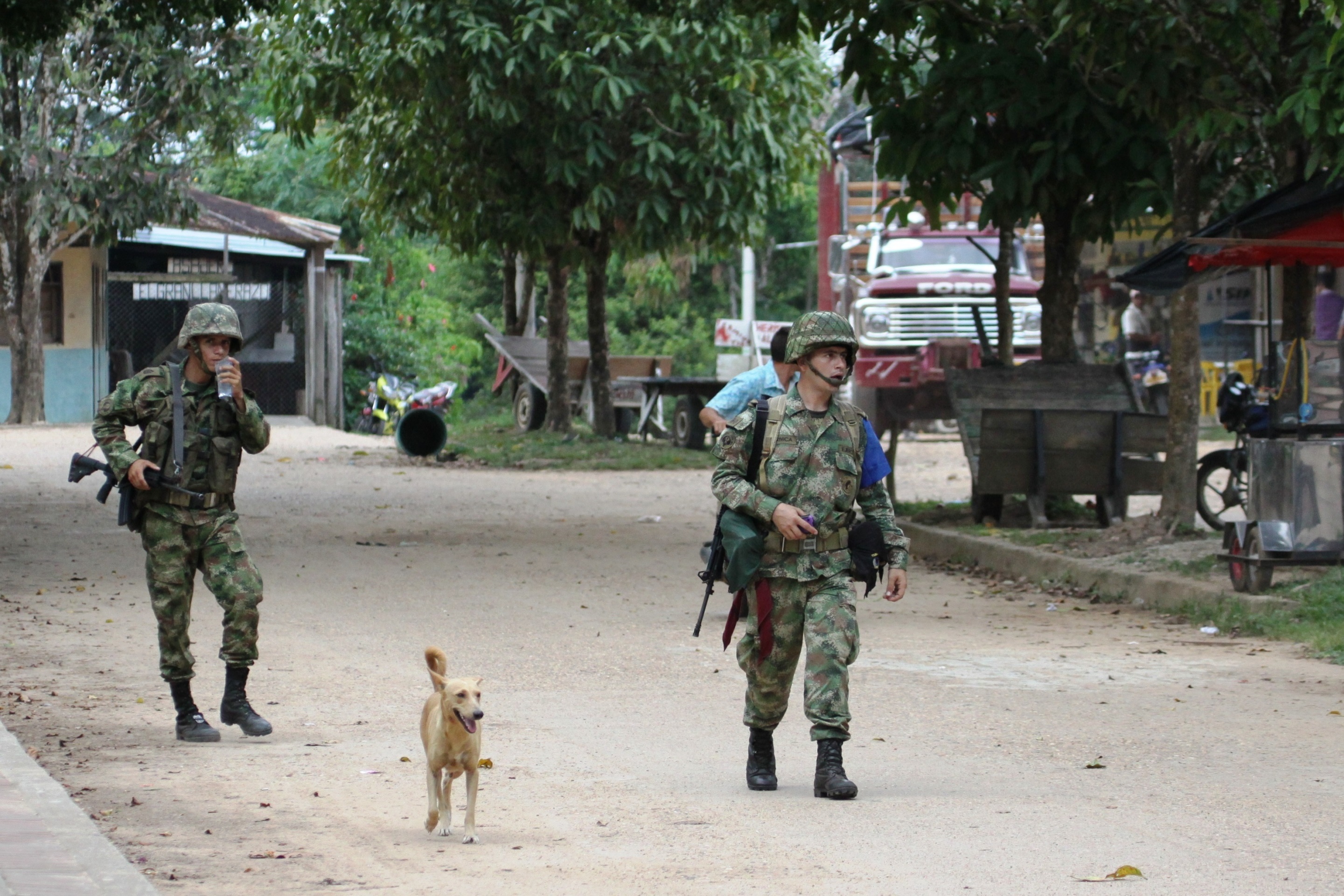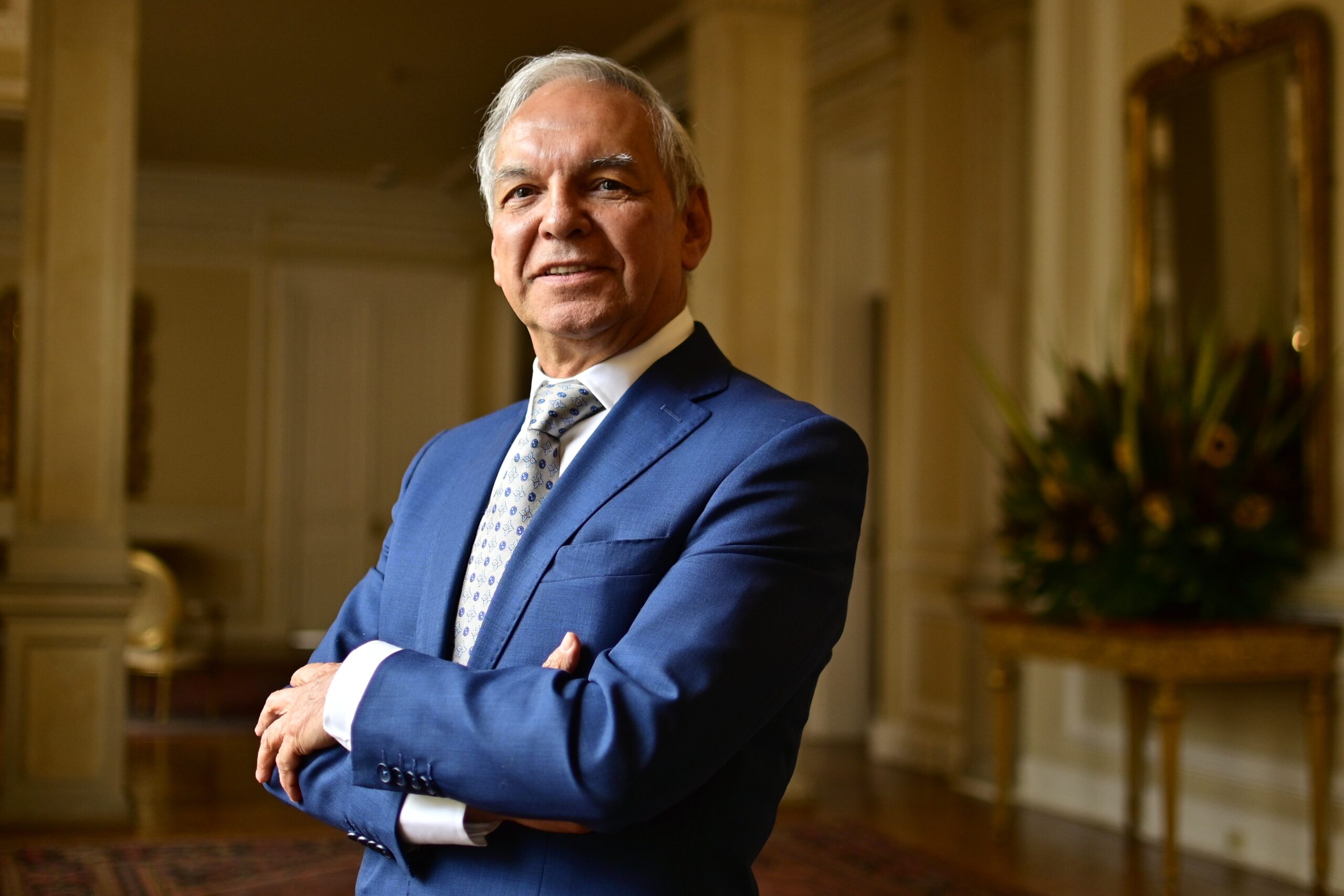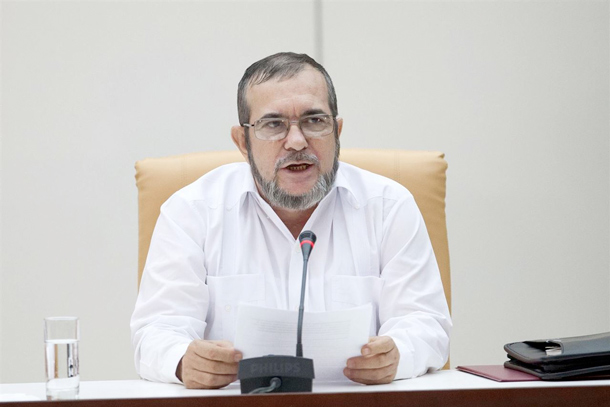
Photo: Franziska Bujara
After over a month and a half on the streets, leaders of the main student organisations negotiating with the Ministry of Education are struggling to maintain the ongoing protests against the government’s education policies. Crowded assemblies, internal disputes and pressure from the deans and parents are starting to weaken the movement’s momentum.
The movement started when teachers protested at the end of September, denouncing how the the most recent tax reform would affect their wages. This triggered unified support from both deans and students who hadn’t been able to summon a common goal for almost eight years–a joint effort reflected in the hugely successful attendance of the 10th of October march. That march brought around 200,000 people together in the capitals of the 32 Colombian departments, including students from private universities and celebrities.
According to the state university system, public universities currently have an operational deficit of COP$1.4 trillion and an infrastructure deficit of COP$15 trillion. Students are asking for at least COP$3.2 trillion for the rest of the year and a new education law that would reverse the growing deficit for the foreseeable future.
Marcha por la defensa y el aumento de los recursos para la educación superior el 10 DE OCTUBRE DE 2018.
Una demostración que pone en duda los resultados electorales. Algo no cuadra. pic.twitter.com/2GprFNOkku— WILLIAM SANABRIA (@DIDASKALOSW) 11 October 2018
At this point, more than 16 public universities were on strike and student leaders were calling on the government to restart negotiations. But this is where problems first arose as a dispute began over who would be the negotiators and public representatives; a dispute that divided the student movement. On the one side, student representatives of all universities were summoned to the Colombian Association of Student Representatives (ACREES) while independent students were summoned to the National Union of Students (UNEES).
It appears as if both groups have similar goals. ACREES demands COP$3.2 trillion while UNEES demands COP$4.5 trillion for solving the universities’ deficit, but UNEES considers that ACREES doesn’t have any legitimacy and insists that all the decisions must be taken within the assemblies.
Although both groups are in the same team when seated at the negotiating table, the UNEES rejects ACREES leadership.The talks have been fraught with tension, so much so that Alejandro Palacio, president of the ACREES and student representative of the National University, told The Bogotá Post that he was anonymously threatened by students.
What is the government’s strategy?
Iván Duque has postponed talks with the students and he is yet to meet them. He had enough support in the Congress to pass the 2019 public budget without adding a significant amount to public universities, despite pressure from the students, teachers, deans and opposition parties.
Two weeks later, President Duque agreed with the deans for an additional COP$ 530 billion over the course of four years to the budget of 61 higher education institutions, far from the amount demanded by the students. As a result, the protests continued.
This deeply divided the student community, who are beginning to question whether it’s worth continuing a strike that could potentially end in a semester cancellation. Dolly Montoya, Dean of the National University, threatened her students with a semester cancellation if they didn’t stop striking this week.
#Bogotá Tuvimos un diálogo franco con los rectores en torno a lo que nos une: fortalecer la educación superior pública. Me complace anunciar que logramos un importante acuerdo para seguir trabajando juntos, con afecto y compromiso, por la educación de los colombianos. pic.twitter.com/IOZDVnc5P9
— Iván Duque (@IvanDuque) 27 October 2018
Last Thursday, students marched with workers and school teachers with a joint goal: more funding for education and less taxes, as a new tax reform is being debated in Congress. The march ended in the use of tear gas by police and a sense of fear among the protesters.
@JenniferPedraz momento en el que la policía empieza a atacar a la multitud de estudiantes. @ACREESCOL @UneesCol pic.twitter.com/2TKSNnxHlh
— Daniela Alvarez Gallo (@_Erbrow) 9 November 2018
Student leaders seem to be running out of time and many believe that the president hasn’t shown political will to discuss the future of education with them. Inside their movement, a small proportion of students have already started to clash violently with the police and destroying public and private property.
Next week will be a key moment for showing whether the student movement is still strong enough to continue the strike, given all the external pressure. According to Alejandro Palacio, Thursday’s demonstration showed that the movement still has huge momentum and he hopes that the president will finally hear the students claim and sit down to negotiate soon.





